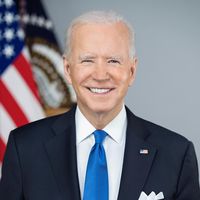The Battle Over Transgender Athletes: A Clash of Ideologies and Funding
May 30, 2025, 9:46 am

Location: United States, Massachusetts, Cambridge
Employees: 10001+
Founded date: 1636
Total raised: $303.77K

Location: United States, District of Columbia, Washington
Employees: 1001-5000
Total raised: $500K
In the ever-evolving landscape of American politics, few issues ignite passion like the debate over transgender athletes in sports. Recently, President Donald Trump threatened to withhold federal funding from California over its policies regarding transgender athletes. This move has sparked a firestorm of controversy, raising questions about fairness, civil rights, and the role of federal funding in state governance.
The heart of the matter lies in California's School Success and Opportunity Act, known as AB 1266. This law allows transgender students to participate in sports consistent with their gender identity. For many, this is a matter of basic rights and inclusion. For others, it raises concerns about competitive fairness. Trump’s executive order, which bans transgender women from competing in women’s sports, has set the stage for a high-stakes showdown.
Trump's threat is not just a political maneuver; it’s a declaration of war on California’s progressive policies. He warned that if the state does not comply with his order, it could face permanent cuts to its federal funding. This funding is vital. California, the world’s fourth-largest economy, relies heavily on federal dollars, with over one-third of its budget coming from Washington. The stakes are high, and the implications are profound.
The Justice Department has jumped into the fray, launching an investigation into whether California's law violates federal civil rights law. This inquiry is not merely procedural; it’s a strategic move that aligns with Trump’s broader agenda. The administration is positioning itself as a defender of women’s sports, claiming that allowing transgender women to compete undermines the rights of biological females. The rhetoric is sharp, painting a picture of a battle for fairness in athletics.
Yet, the reality is more complex. Supporters of transgender rights argue that inclusion is paramount. They contend that sports should be a space where everyone can compete, regardless of gender identity. They see Trump’s actions as an attack on the dignity and rights of transgender individuals. The debate is not just about sports; it’s about identity, acceptance, and the fundamental right to participate in society.
On the other side, critics of transgender participation in women’s sports argue that it creates an uneven playing field. They cite instances where transgender athletes have excelled in competitions, claiming that biological advantages exist. This perspective has gained traction among some groups, leading to a polarized environment where compromise seems elusive.
California’s response to Trump’s threats has been measured. Governor Gavin Newsom has expressed a commitment to protecting the rights of transgender athletes while also acknowledging the concerns raised by critics. His administration has introduced a new pilot entry process aimed at ensuring that biological female athletes are not displaced in competitions. This approach seeks to balance inclusion with fairness, but it remains to be seen whether it will satisfy all parties involved.
The tension between state and federal authority is palpable. Trump’s threats echo a broader trend of using federal funding as leverage against states that adopt progressive policies. This tactic has been employed in various contexts, from immigration to education. It raises fundamental questions about the balance of power in American governance. Should the federal government dictate state policies through financial coercion? Or should states have the autonomy to enact laws that reflect their values?
The implications of this conflict extend beyond California. Other states are watching closely, as they navigate their own policies regarding transgender athletes. The outcome of this battle could set a precedent, influencing legislation across the nation. It’s a microcosm of the larger cultural wars playing out in America, where issues of identity, rights, and fairness collide.
As the investigation unfolds, the narrative will likely shift. Legal battles may ensue, and public opinion will continue to evolve. The stakes are high, and the consequences will be felt for years to come. This is not just a fight over sports; it’s a fight over the soul of a nation grappling with its values.
In the end, the debate over transgender athletes is emblematic of a deeper struggle within American society. It reflects the tensions between tradition and progress, inclusion and fairness. As both sides dig in, the question remains: can a middle ground be found? Or will this conflict deepen the divides that already fracture the nation? The answer may lie in the willingness of both sides to engage in dialogue, to listen, and to seek understanding. In a world that often feels divided, perhaps the greatest victory lies in finding common ground.
The heart of the matter lies in California's School Success and Opportunity Act, known as AB 1266. This law allows transgender students to participate in sports consistent with their gender identity. For many, this is a matter of basic rights and inclusion. For others, it raises concerns about competitive fairness. Trump’s executive order, which bans transgender women from competing in women’s sports, has set the stage for a high-stakes showdown.
Trump's threat is not just a political maneuver; it’s a declaration of war on California’s progressive policies. He warned that if the state does not comply with his order, it could face permanent cuts to its federal funding. This funding is vital. California, the world’s fourth-largest economy, relies heavily on federal dollars, with over one-third of its budget coming from Washington. The stakes are high, and the implications are profound.
The Justice Department has jumped into the fray, launching an investigation into whether California's law violates federal civil rights law. This inquiry is not merely procedural; it’s a strategic move that aligns with Trump’s broader agenda. The administration is positioning itself as a defender of women’s sports, claiming that allowing transgender women to compete undermines the rights of biological females. The rhetoric is sharp, painting a picture of a battle for fairness in athletics.
Yet, the reality is more complex. Supporters of transgender rights argue that inclusion is paramount. They contend that sports should be a space where everyone can compete, regardless of gender identity. They see Trump’s actions as an attack on the dignity and rights of transgender individuals. The debate is not just about sports; it’s about identity, acceptance, and the fundamental right to participate in society.
On the other side, critics of transgender participation in women’s sports argue that it creates an uneven playing field. They cite instances where transgender athletes have excelled in competitions, claiming that biological advantages exist. This perspective has gained traction among some groups, leading to a polarized environment where compromise seems elusive.
California’s response to Trump’s threats has been measured. Governor Gavin Newsom has expressed a commitment to protecting the rights of transgender athletes while also acknowledging the concerns raised by critics. His administration has introduced a new pilot entry process aimed at ensuring that biological female athletes are not displaced in competitions. This approach seeks to balance inclusion with fairness, but it remains to be seen whether it will satisfy all parties involved.
The tension between state and federal authority is palpable. Trump’s threats echo a broader trend of using federal funding as leverage against states that adopt progressive policies. This tactic has been employed in various contexts, from immigration to education. It raises fundamental questions about the balance of power in American governance. Should the federal government dictate state policies through financial coercion? Or should states have the autonomy to enact laws that reflect their values?
The implications of this conflict extend beyond California. Other states are watching closely, as they navigate their own policies regarding transgender athletes. The outcome of this battle could set a precedent, influencing legislation across the nation. It’s a microcosm of the larger cultural wars playing out in America, where issues of identity, rights, and fairness collide.
As the investigation unfolds, the narrative will likely shift. Legal battles may ensue, and public opinion will continue to evolve. The stakes are high, and the consequences will be felt for years to come. This is not just a fight over sports; it’s a fight over the soul of a nation grappling with its values.
In the end, the debate over transgender athletes is emblematic of a deeper struggle within American society. It reflects the tensions between tradition and progress, inclusion and fairness. As both sides dig in, the question remains: can a middle ground be found? Or will this conflict deepen the divides that already fracture the nation? The answer may lie in the willingness of both sides to engage in dialogue, to listen, and to seek understanding. In a world that often feels divided, perhaps the greatest victory lies in finding common ground.
